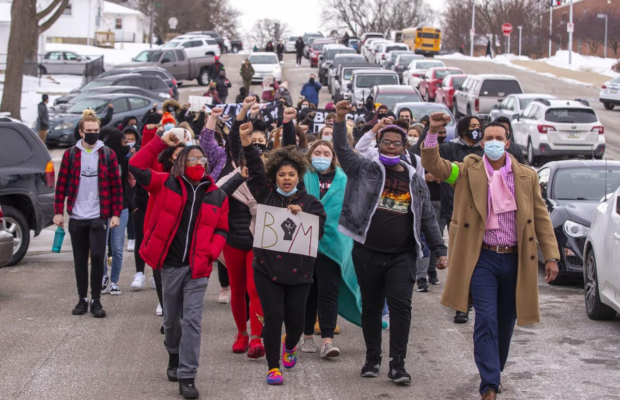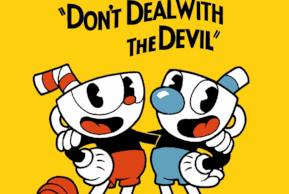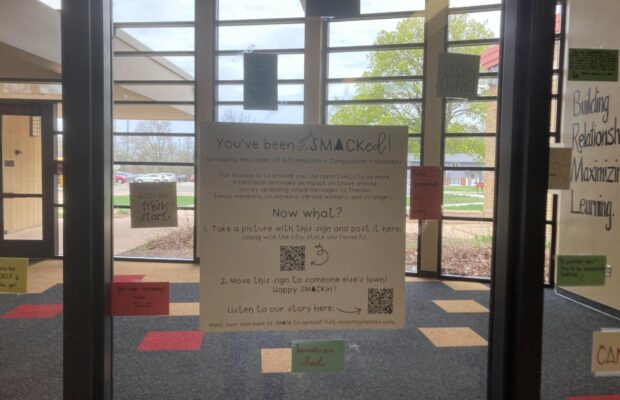How to Advocate For the Collective Rather Than the Character

Due to recent legislation not only in local government, but also in other states, a number of students, namely those who are LGBTQIA+, have started to become very vocal about their plans of advocacy, but especially for those who are currently underclassmen there are quite a few things you need to know about advocacy and how to properly advocate, not only for yourself but for those who you are an ally to.
The following article is based off of a quote from Ms.Sonya Reis, given at this year’s trip to the Hill conference. “Advocate for the collective” was a call to arms for young advocates in the state of Iowa to not only stand up for those in their own demographic, but to also stand for those who had been similarly oppressed. Those who were advocating for queer rights were asked to stand with BIPOC activist. Those fighting for the equal treatment of women were encouraged to support those who were pushing for mental health and a look into misinformation on those suffering from these issues. Everyone sitting in that conference was asked to band together to support one another, and just because you weren’t present for the speech doesn’t mean you can’t listen to what was said.
So what do you need to know? Advocating for the collective and being an ally overall has three major points. You need to have the ability to reject and overcome your own biases, you need to be able to avoid occupying spaces not meant for you and most importantly you need to be able to shut up and listen to those you have chosen to represent.
Let’s work backward and focus on that last one first. The most important part of allyship is understanding that you are not the person who has experienced these things. If someone who’s a part of the minority group calls you out on how you choose to be an ally, you do not have the right to ignore that person. Now you can debate with them for sure, but you can’t just flat out ignore them. We see this mainly with something called performative activism. It has many form, but some of its most common examples as of late are putting BLM or a black square in your bio without following/supporting black creators. It’s using AAVE improperly and calling yourself “with it” or calling it “gay lingo.” It’s going to a gay bar and then freaking out when a guy politely offers to buy you a drink. It’s showing up at a local drag show at a small town pride parade and refusing to tip your entertainers. It’s wearing protective styles your hair wasn’t made for. It’s wearing clothing or getting tattoos from a culture you don’t have any connection with or understanding for. It’s saying you support misrepresented people and then doing things that slap them in the teeth with disrespect. It’s supporting and performing microaggressions then getting upset when you get called out.
If you call yourself an activist and an ally, then listen when you’re told to sit down and educate yourself. Biases don’t make you a bad person. The system has spent decades pouring harmful biases into our heads to better separate us, but refusing to work on those biases when they are brought to your attention does because then you are actively working against those you claim you want to help.
An example from the first point is a lovely lead in for the second, so here’s your scenario. Imagine you are a cisgender heterosexual, and you self identify as a queer ally. June rolls around and so you decide to go to show up at a local drag show to your small town’s pride parade. As you watch the show several times, you are asked to tip. You decide to refuse to tip your entertainers. This is offensive for a few reasons. 1. You didn’t bring cash to a live show—not only a live show but a live show where the performers provide all their own costumes, makeup, shoes, hair, props and even music. Think about social norms. If it’s taboo to do that at certain clubs (that only seniors and staff should be at) where the dancers have a few of those supplied, why wouldn’t it be taboo at a show where everything is often provided by the entertainers? 2. You’re not a part of the community. You took up a seat that could have been taken by a queer person who had cash. This is an example of occupying space that isn’t meant for you. While, yes, straight allies are welcome at pride, they should always, to be blunt, make themselves scarce. Pride is sacred. It’s not a celebration of allyship, togetherness, acceptance or even love. Pride is a funeral march for many and a reminder of our battles for others. While, yes, there are plenty of parties and parades, it’s still a very important occasion that has no room for straight people who want to make it all about them, and it’s not just pride. There was a conference for social media influencers a few months back that was for black creators, and several white creators still showed up. Since it was still during the pandemic, seats were scarce and lots of black creators lost their chance to go to the event, yet another example of supposed allies not reading the room or in this case the invites. The point here? If you know that the space you are heading to has a minority somewhere in the title and you are not 1. a part of it or 2. invited by someone who is a part of it, don’t go there.
And finally, you need to overcome your own biases. As I said earlier, biases don’t make you a bad person. The system has spent decades pouring harmful biases into our heads to better separate us, but refusing to work on those biases when they are brought to your attention does because then you are actively working against those you claim you want to help. We see an inability to overcome biases especially in white supporters of BLM. As a lot of these allies are stuck in a mindset of bad people=racist and good people=non-racist, but, if you’ll excuse the pun, it’s not all black and white. We all have biases in life whether we develop them from our parents, our peers, teachers, coaches, churches or even just our general community. No one develops a bias on their own so no one is 100 percent to blame for those biases that they hold, but they are to blame for when they are so high up on their pedestal of self righteousness that they refuse to acknowledge that they are there.
For example, I acknowledge I have a bias that I think weed isn’t bad. I also acknowledge that many people disagree and many have been hurt by users of weed or by the drug itself. I’m not a bad person because I support weed, but I would be a bad person if I refused to accept that weed has had a bad history for some people and can be dangerous to people in certain situations. I would be a worse person if I then forced those people to constantly listen to my perspective or if I tried to get them to smoke some.
But how does this flip back to advocacy? Well, if you have a bias against a minority that you understand is unpopular or even hurtful and you refuse to acknowledge that bias or worse try to force others to share your views, you are not an ally, and in most cases this kind of behavior will have you labeled either as racist, homophobic or abelist. If you want to be an ally, you need to swallow your pride and learn that you are not always going to be right, and that often your biases stem from a place of ignorance and of fear.
So if you truly want to advocate for all, take some time and ask yourself, why do I think this? Why do I assume that? If the answers have no factual backing, work to overcome that perception of those around you.
In the end, we are all just working to make the world a better place, but a lot of us are only working for ourselves or those who look, act, speak and love like us, and all that’s doing is creating a greater divide, so if you take nothing else away from this article, take this. We are all human. We are all scared. We all were once or still are children who are just trying to make this big scary place a little more comfortable. Imagine how much faster that would happen if we put down our hatred of one another and just did what needed to be done. How much easier wars would be won if we all just did at the beginning what usually happens after the battles, and we talked. How much faster we could progress if allies followed those three simple rules, so if you want to be an ally, a true ally, you need to have the ability to reject and overcome your own biases, you need to be able to avoid occupying spaces not meant for you and most importantly you need to be able to shut up and listen to those you have chosen to represent.









You must be logged in to post a comment Login